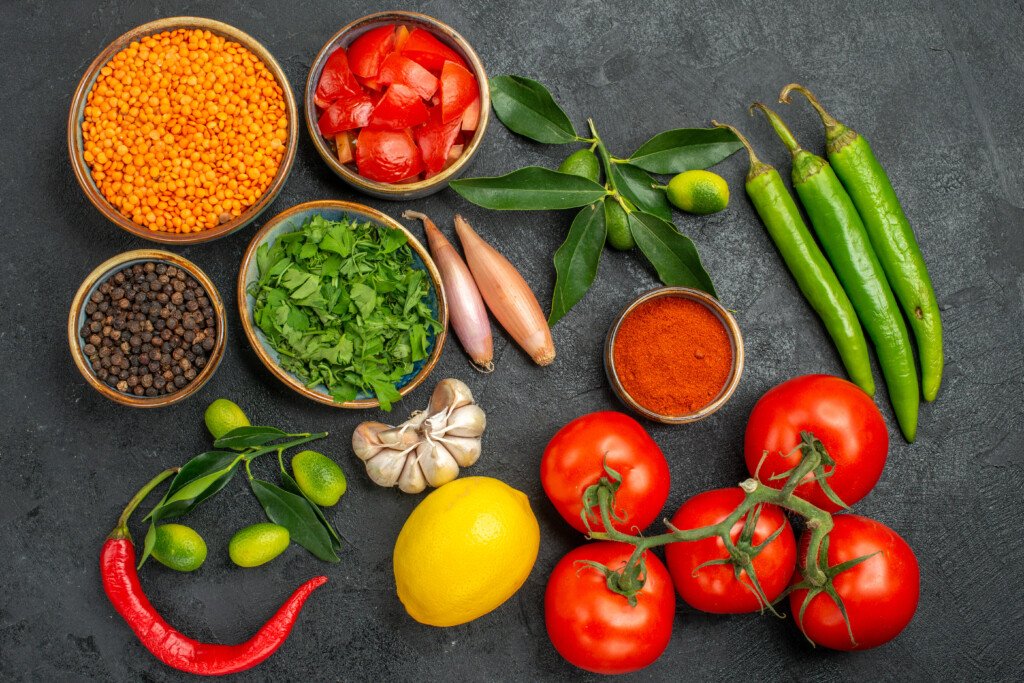Your immune system is your body’s natural defense against harmful invaders like viruses, bacteria, Worst Food Ingredients for Your Immune System and toxins. While many factors contribute to a strong immune system, your diet plays a critical role in keeping your immune response strong and effective.
Unfortunately, some of the most common food ingredients in everyday diets can actually weaken immune health. In this article, we’ll explore the top 5 worst food ingredients for your immune system and give you healthier alternatives to support long-term wellness.
Why Your Diet Matters for Immune Health
The immune system is a complex network of cells, organs, and tissues working together to protect the body. A poor diet can trigger inflammation, suppress immune function, and make your body more vulnerable to illness. By identifying and avoiding harmful food ingredients, you can significantly boost your immune health naturally.
1. Refined Sugars: A Sweet Enemy of Immunity
Keywords: refined sugar Worst Food Ingredients for Your Immune System, sugar and inflammation, immune-suppressing foods
Refined sugars are heavily processed and stripped of essential nutrients. These include:
- White sugar
- Brown sugar
- Corn syrup
- High-fructose corn syrup
How Refined Sugars Harm Your Immune System
Excess sugar consumption is linked to chronic inflammation, insulin resistance, and obesity—all of which suppress immune function. Studies show that sugar impairs the activity of white blood cells, your body’s main defenders against pathogens.
Healthier Alternatives to Refined Sugars
- Raw honey
- Stevia
- Maple syrup
- Coconut sugar
Tip: Gradually reduce sugar intake and read labels to avoid hidden sugars in processed foods and drinks.
2. Trans Fats: The Hidden Threat in Packaged Foods
Keywords: trans fats, immune system, inflammation from food, harmful fats
Trans fats are manufactured fats found in many packaged and fast foods. Created by hydrogenating oils, they improve shelf life but are harmful to health.
Common sources of trans fats:
- Packaged snacks
- Fried fast food
- Margarine
- Baked goods (cookies, cakes, donuts)
How Trans Fats Weaken Immune Response
Trans fats promote systemic inflammation, impair blood flow, and interfere with the body’s ability to fight infections. Over time, they increase your risk for heart disease, stroke, and immune dysfunction.
Swap Trans Fats with Healthy Fats
- Avocados
- Extra virgin olive oil
- Nuts and seeds
- Fatty fish like salmon and sardines
3. Artificial Sweeteners: A Sugar-Free Danger
Keywords: artificial sweeteners, gut health, aspartame and immunity, sugar substitute,s immune system
Artificial sweeteners like aspartame, sucralose, and saccharin are often used as sugar-free substitutes, especially in diet sodas and “light” foods.
The Link Between Artificial Sweeteners and Poor Immunity
Research suggests that these sweeteners disrupt the gut microbiome, home to 70% of your immune system. This imbalance can reduce immunity, cause inflammation, and increase the risk of metabolic issues.
Better Sweetener Options
- Monk fruit extract
- Stevia (pure form)
- Raw honey (in moderation)
Note: Not all sugar-free foods are healthy. Always check ingredient labels carefully.
4. Processed Meats: A Salty, Chemical-Laden Risk
Keywords: processed meats, immune system, nitrates and immunity, unhealthy protein sources
Processed meats include:
- Hot dogs
- Bacon
- Sausages
- Deli meats
- Canned meat
These products are high in sodium, saturated fats, and preservatives like nitrates and nitrites.
Immune System Damage from Processed Meats
- Increases inflammation
- Raises blood pressure
- Introduces harmful chemicals
- Contributes to obesity and cancer risk
Healthier Protein Choices
- Organic chicken or turkey
- Lean grass-fed beef
- Lentils and chickpeas
- Wild-caught fish
Cooking tip: Choose grilling, steaming, or baking over frying to retain nutrients.
5. Pesticide Residues: Invisible Toxins in Produce
Keywords: pesticides and Worst Food Ingredients for Your Immune System, organic produce benefits, chemical exposure in food
Pesticides are widely used in farming to control insects and weeds. However, even after washing, residue often remains on your fruits, vegetables, and grains.
How Pesticides Impact Immune Health
Long-term exposure to pesticide residues can:
- Disrupt white blood cell function
- Cause chronic inflammation
- Increase the risk of immune-related illnesses
Reduce Pesticide Intake
- Buy organic when possible
- Wash produce thoroughly with vinegar + water solution
- Choose seasonal, local fruits and vegetables
Tip: Refer to the EWG’s Dirty Dozen and Clean Fifteen list to know which produce has the highest and lowest pesticide residues.
The Bottom Line: Ingredients to Avoid for Better Immunity
Building a strong immune system starts in the kitchen. Avoiding these five harmful food ingredients can reduce inflammation, balance your gut, and improve your body’s ability to defend against illness.
Quick Recap of the Worst Ingredients:
| Harmful Ingredient | Better Alternative |
|---|---|
| Refined Sugars | Raw honey, stevia, and coconut sugar |
| Trans Fats | Olive oil, avocados, nuts |
| Artificial Sweeteners | Monk fruit, maple syrup |
| Processed Meats | Organic poultry, legumes |
| Pesticide Residues | Organic produce, local vegetables |
FAQs: Worst Foods for Immune Health
Q1: What foods lower immune system function the most?
A1: Refined sugars, trans fats, artificial sweeteners, processed meats, and foods with pesticide residues are among the worst for your immune health.
Q2: Can I reverse immune damage caused by poor diet?
A2: Yes! Switching to a whole-food, nutrient-rich diet with anti-inflammatory ingredients can help repair and boost your immune function over time.
Q3: Are all processed foods harmful?
A3: Not necessarily. Minimally processed foods like frozen veggies are okay. Focus on avoiding ultra-processed foods with added sugars, preservatives, and unhealthy fats.
Q4: What supplements support the immune system?
A4: Vitamin C, zinc, vitamin D, and probiotics are commonly used to support immune health, but whole foods should be your first line of defense.






